Managing business operations efficiently is challenging in today’s fast-paced market. Operations management software can help overcome issues like production delays, inefficient resource allocation, and human errors that lead to costly mistakes, improving productivity and profitability.
A study by the Malaysian Institute of Management highlights that businesses in Malaysia adopting digital solutions see up to a 25% increase in operational efficiency. This significant boost demonstrates how technology-driven tools can minimize errors, streamline processes, and improve overall productivity.
In this article, we’ll explore the best operations management software available in 2026 and how it can address your business’s unique needs. Stay tuned to find the perfect solution and take your operations to the next level.

Key Takeaways
|
What is Operations Management Software?
Operations management is crucial for streamlining production processes, resource allocation, and supply chain activities. Operations management software automates routine tasks and provides real-time insights, enabling better decision-making and improved operational efficiency.
By integrating functions like production planning, inventory control, and quality management, it helps businesses track performance, monitor progress, and identify bottlenecks. This enhances productivity, reduces errors, and ensures smooth workflows, making it an essential tool for modern business operations.
Hashy AI Fact

Need to know!
Hashy AI boosts operational efficiency by instantly generating performance reports, detecting bottlenecks, and optimizing workflows, directly through a chatbox for faster, smarter decision-making.
Request a free demo today!
Top 10 Production and Operations Management Software for Businesses
Here are ten production and ERP software in Malaysia tailored for businesses looking to optimize their operations.
- HashMicro: Full-featured modules for real-time operations.
- Trello: Perfect for easily tracking tasks and managing projects.
- Asana: For organizing tasks, timelines, and team workflows.
- Jira: Offering agile tools and issue tracking for smooth project execution.
- Slack: Keeps teams connected with strong integrations for workflows.
- SafetyCulture: Focused on safety with real-time inspections.
- Odoo: A flexible ERP platform tailored for growing business operations.
- Zoho Creator: Automating custom workflows and managing data easily.
- NetSuite: A cloud-based, advanced tool for end-to-end operations.
- ClickUp: An all-in-one platform for task management, time tracking.
1. HashMicro Operations Management Software
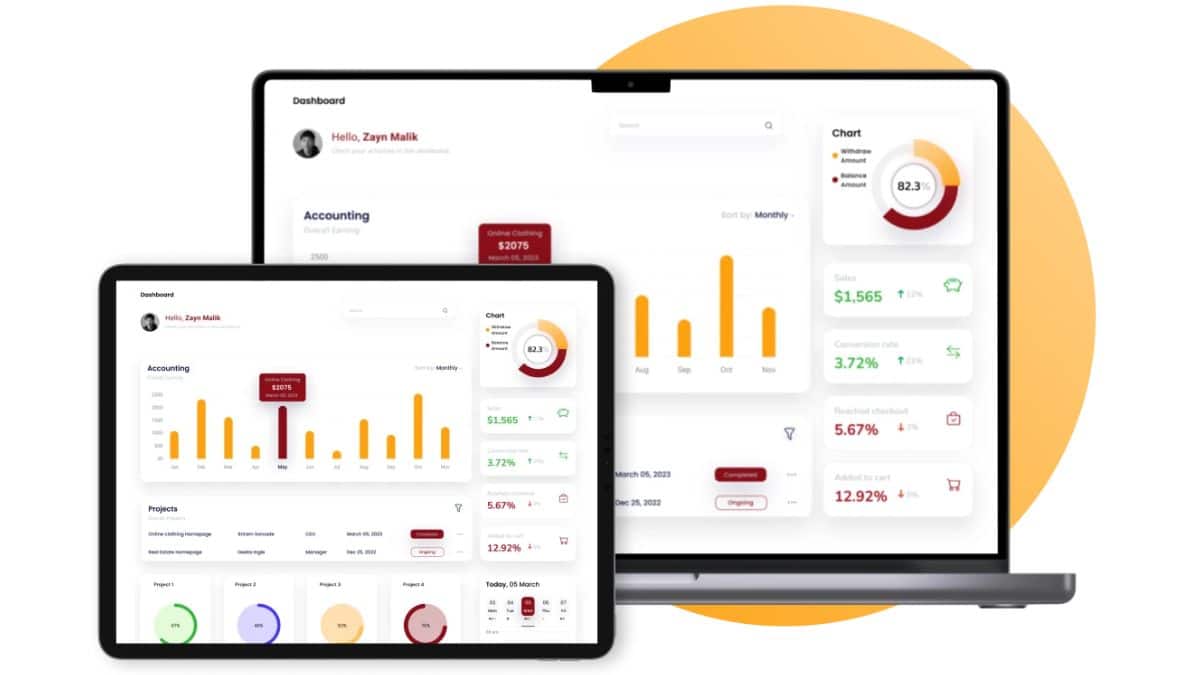
HashMicro is a leading enterprise resource planning (ERP) solution known for its robust operations management capabilities. Established in Singapore, HashMicro has grown to serve businesses globally with its customizable and scalable software.
Why we choose: We selected HashMicro for its highly customizable ERP solutions that integrate seamlessly with various business operations. With a free demo available, businesses can explore its comprehensive features before committing.
It offers seamless integration with various essential modules, including Accounting, Retail ERP, Manufacturing, Inventory Management, and more, ensuring smooth data flow and optimized efficiency across departments.
HashMicro’s operations management software is recognized for its comprehensive features that cater to the unique needs of businesses. Plus, with the added benefit of a free demo, businesses can explore the software’s full potential before committing.
Key features:
- Enhanced Business Intelligence: HashMicro’s operations management software gains instant, data-driven insights through automated analysis, empowering businesses to make quicker and more informed decisions. Real-time reporting and trend forecasting enable better strategic planning and proactive management.
- Streamlined Data Management: HashMicro’s operations management software maintains well-structured and easily accessible records for inventory, finance, and operations through automated systems. This ensures data accuracy, smooth collaboration across departments, and efficient workflow management.
- Automated Inventory Control: HashMicro’s operations management software accelerates stock counting with a computerized system that minimizes manual errors and enhances efficiency. Real-time stock updates provide precise inventory tracking and better control over supply levels.
- Advanced Financial Monitoring: HashMicro’s operations management software simplifies bookkeeping by automating transaction recording, categorization, and real-time tracking. This feature reduces human errors, ensures regulatory compliance, and keeps financial data accurate and up to date.
- Real-Time Reporting & Actionable Insights: HashMicro’s operations management software access comprehensive financial and operational reports with real-time data for effortless performance monitoring. With clear visibility into trends and performance, businesses can drive efficiency and make confident, data-backed decisions.
| Pros | Cons |
|
|
To sum up, HashMicro operation management software stands out as the perfect solution for businesses aiming to enhance efficiency and accuracy in their operations.
Ready to take your business to the next level? Reach out to their expert team by clicking the banner below to see how HashMicro can revolutionize your company’s operations in Malaysia.
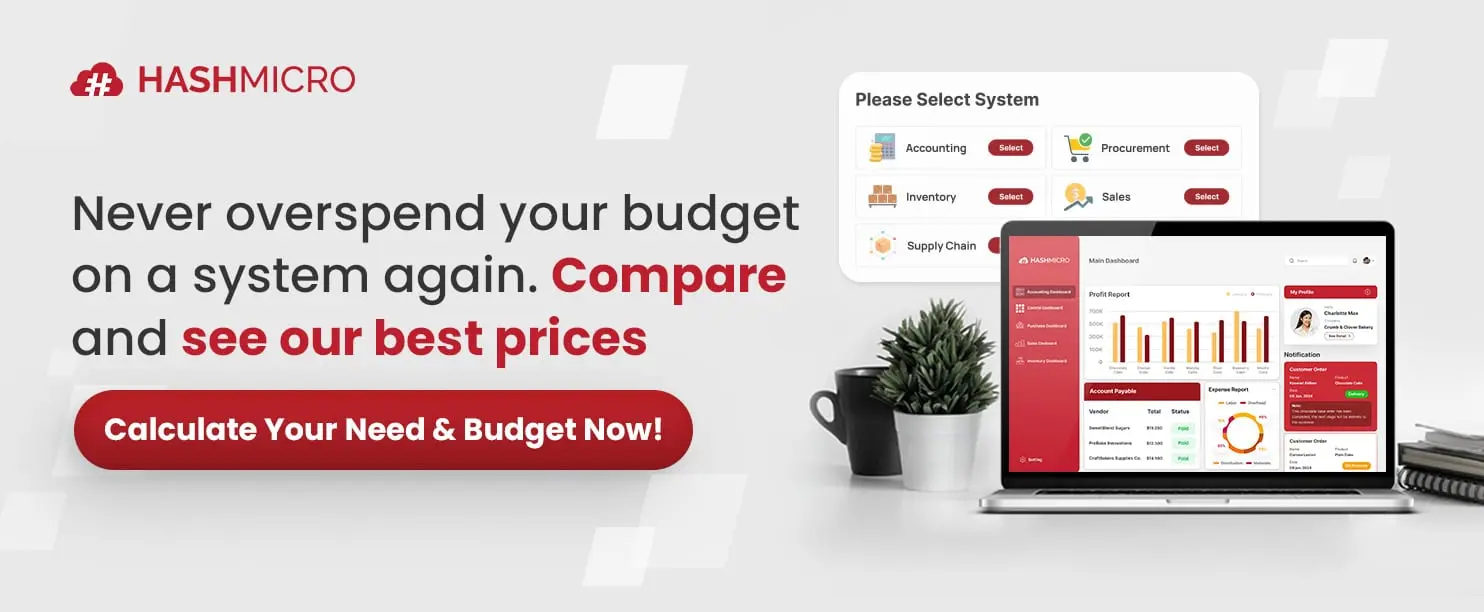
2. Trello Production and Operations Management Software
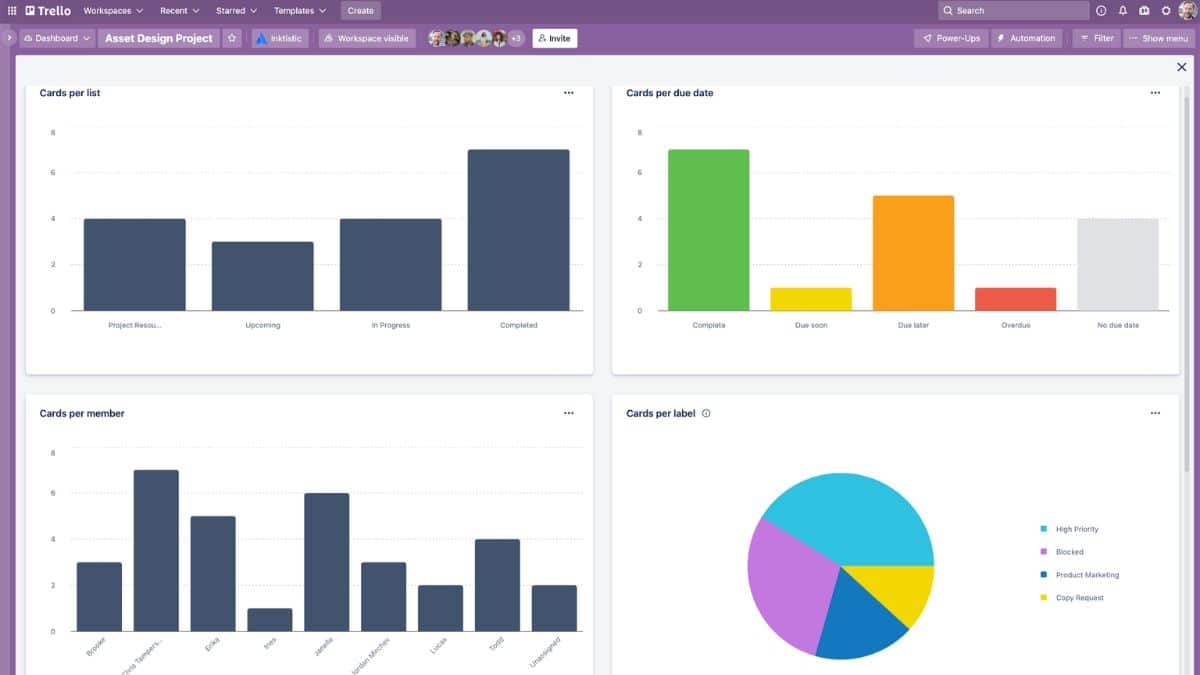
Trello is a popular project management tool that can also support production and operations management. Its visual board interface simplifies task tracking and team collaboration, making it ideal for businesses managing multiple projects.
Why we choose: Trello operation management software stands out for its visual task management system, which simplifies organizing and tracking operations. Its intuitive drag-and-drop interface makes it easy for teams to collaborate and manage multiple projects efficiently.
Key features:
- Visual task management
- Customizable boards and cards
- Easy drag-and-drop interface
- Kanban-style task management
- Real-time collaboration
| Pros | Cons |
|
|
3. Asana
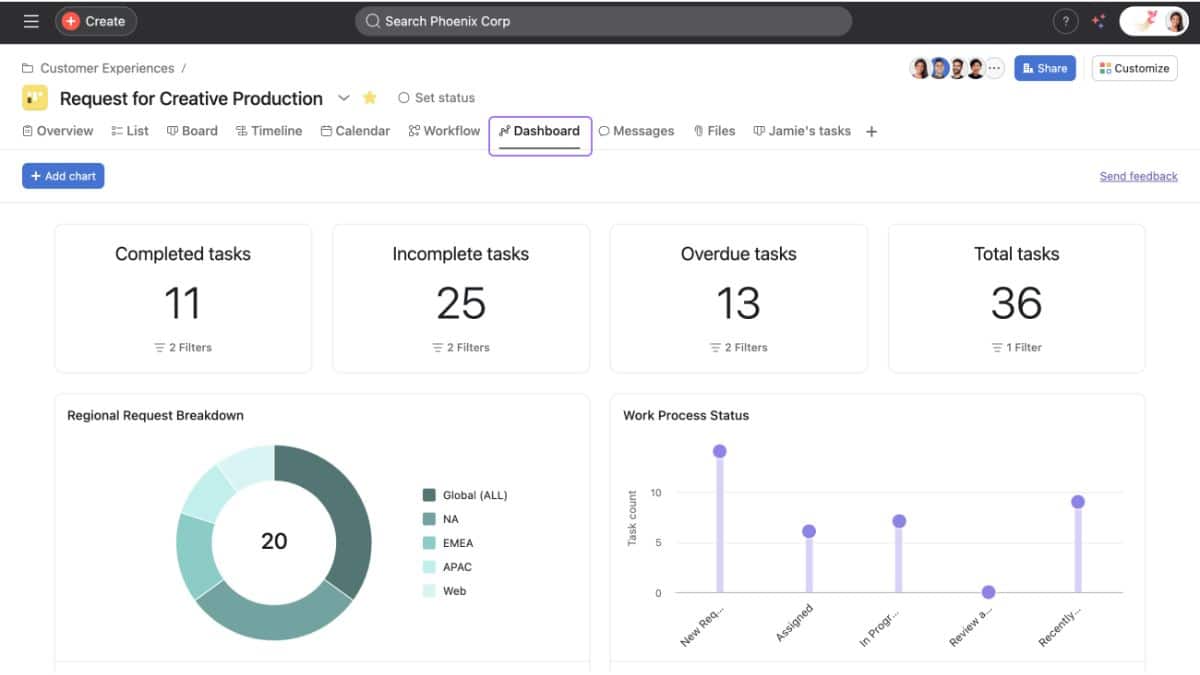
Asana is a powerful task and project management platform known for its versatility and ease of use. It is known for its user-friendly interface and powerful project-tracking capabilities. Founded by former Facebook executives, Asana has become a good tool for businesses. It helps businesses manage production timelines, assign tasks, and monitor progress efficiently.
Why we choose: We chose Asana for its intuitive project management features that enhance productivity and streamline workflows. Its user-friendly interface and powerful tracking tools make it ideal for managing production timelines and team assignments.
Key features:
- Task and project management
- Real-time collaboration tools
- Easy integration with other tools
- Timeline and Gantt chart views
- Customizable templates
| Pros | Cons |
|
|
4. Jira
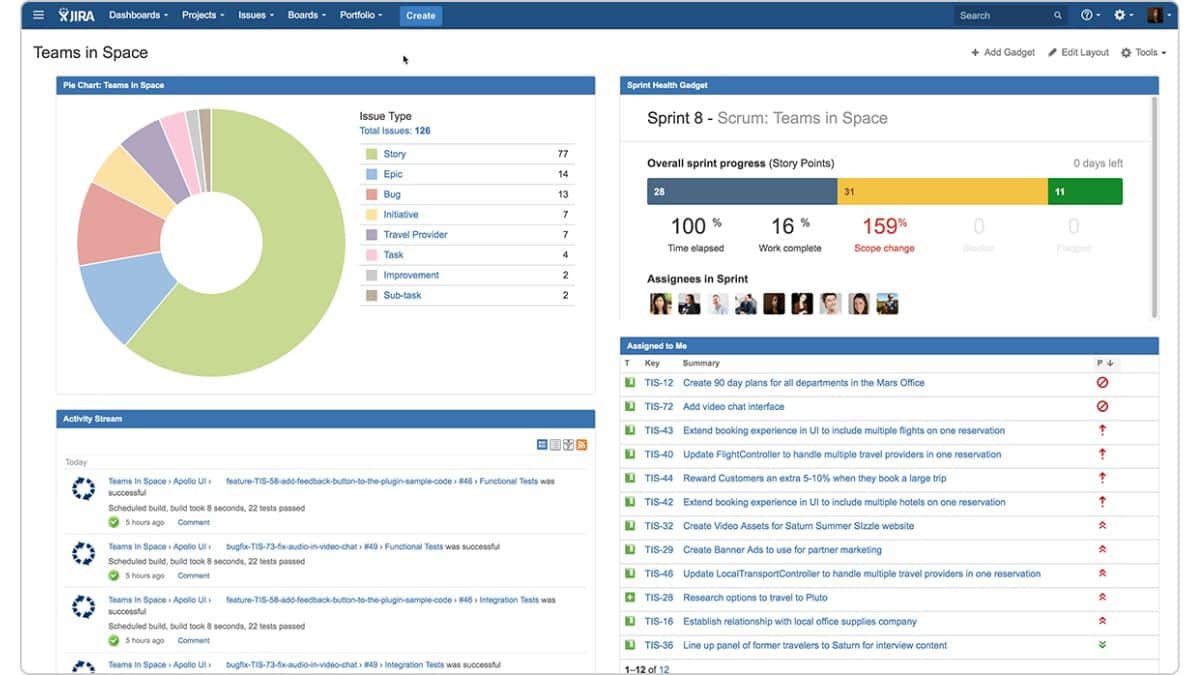
Jira, developed by Atlassian, is a top choice for businesses managing technical production and development projects. It offers extensive customization and advanced workflow capabilities.
Why we choose: Jira operation management software is our choice for businesses handling technical production and development projects due to its extensive customization and advanced workflow capabilities. Its agile project management tools ensure efficient issue tracking and smooth collaboration.
Key Features:
- Agile project management
- Advanced issue tracking
- Customizable workflows
- Comprehensive reporting
| Pros | Cons |
|
|
5. Slack Cloud Operations Management Software

Slack is primarily a communication tool, but its extensive integration capabilities make it useful for operations management. It helps teams stay connected and streamline information sharing. While it started as a simple messaging app, Slack has evolved into a robust platform for managing communication, tasks, and workflows, especially in a remote or distributed team environment.
Why we choose: We selected Slack operation management software for its real-time communication and collaboration features, which help teams stay connected and streamline workflows. With strong integration capabilities, it enhances team productivity and information sharing.
Key features:
- Real-time messaging and collaboration
- Customizable channels for different teams
- Integration with a wide range of tools
- File sharing and project management features
| Pros | Cons |
|
|
6. Safety Culture
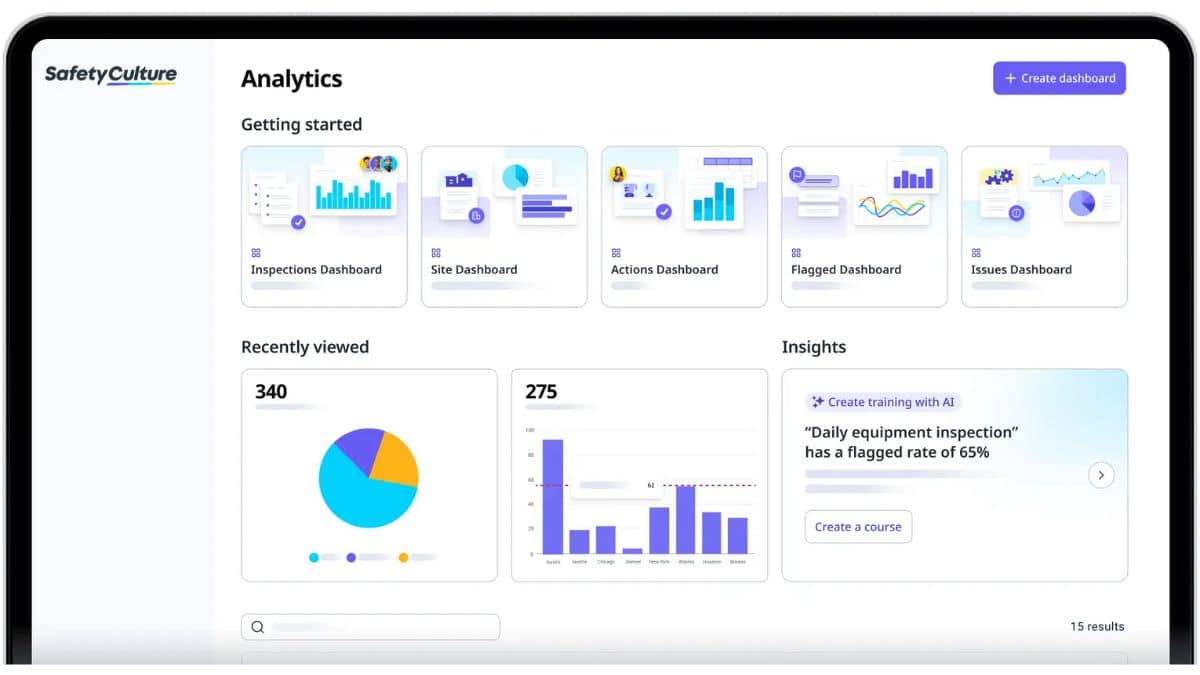
Safety Culture specializes in operations management software focused on safety and quality control. Its comprehensive platform is trusted by industries where safety is paramount. With a strong emphasis on compliance and safety, Safety Culture has become a trusted name in industries where safety is paramount.
Why we choose: SafetyCulture operation management software was chosen for its strong focus on safety and compliance management, making it ideal for industries that prioritize regulatory standards. Its real-time inspection and reporting tools help businesses maintain workplace safety and quality control.
Key features:
- Safety and quality control checklists
- Real-time inspection reporting
- Incident reporting
- Mobile accessibility
| Pros | Cons |
|
|
7. Odoo Production and Operations Management Software
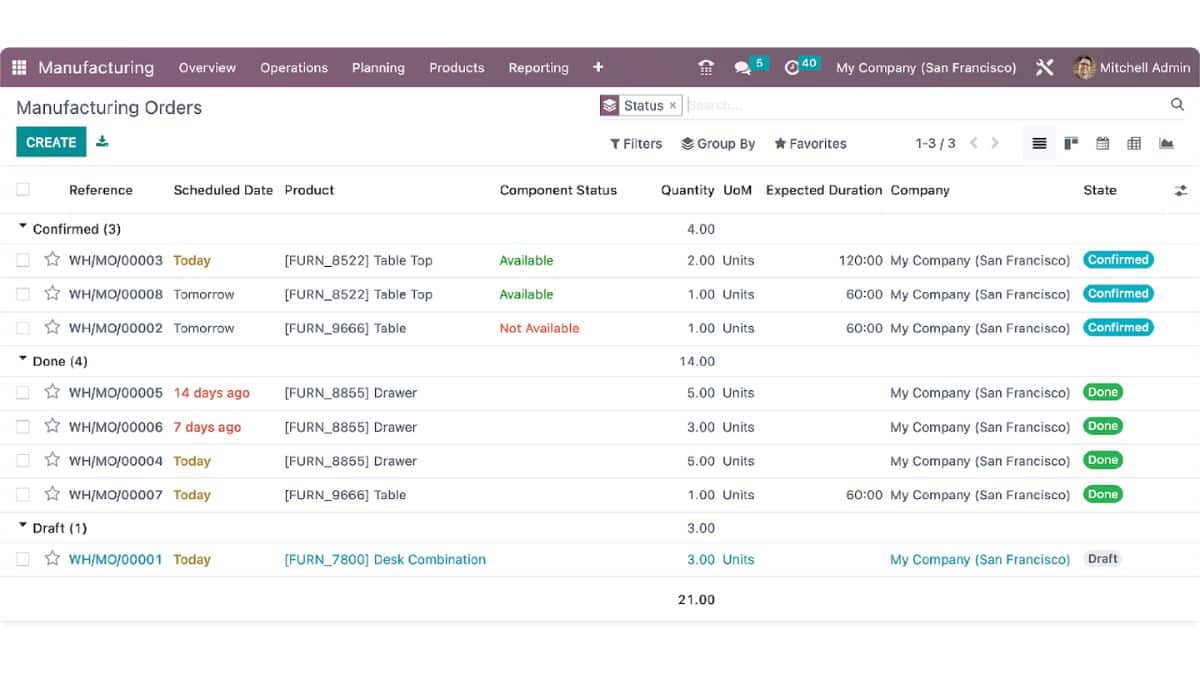
Why we choose: We picked Odoo operation management software for its modular ERP system, allowing businesses to select only the tools they need. Its open-source flexibility and strong community support make it a cost-effective and scalable solution.
Key features:
- Open-source flexibility
- Strong community support
- Modular ERP system
- Advanced inventory management
- Comprehensive reporting tools
| Pros | Cons |
|
|
8. Zoho Creator
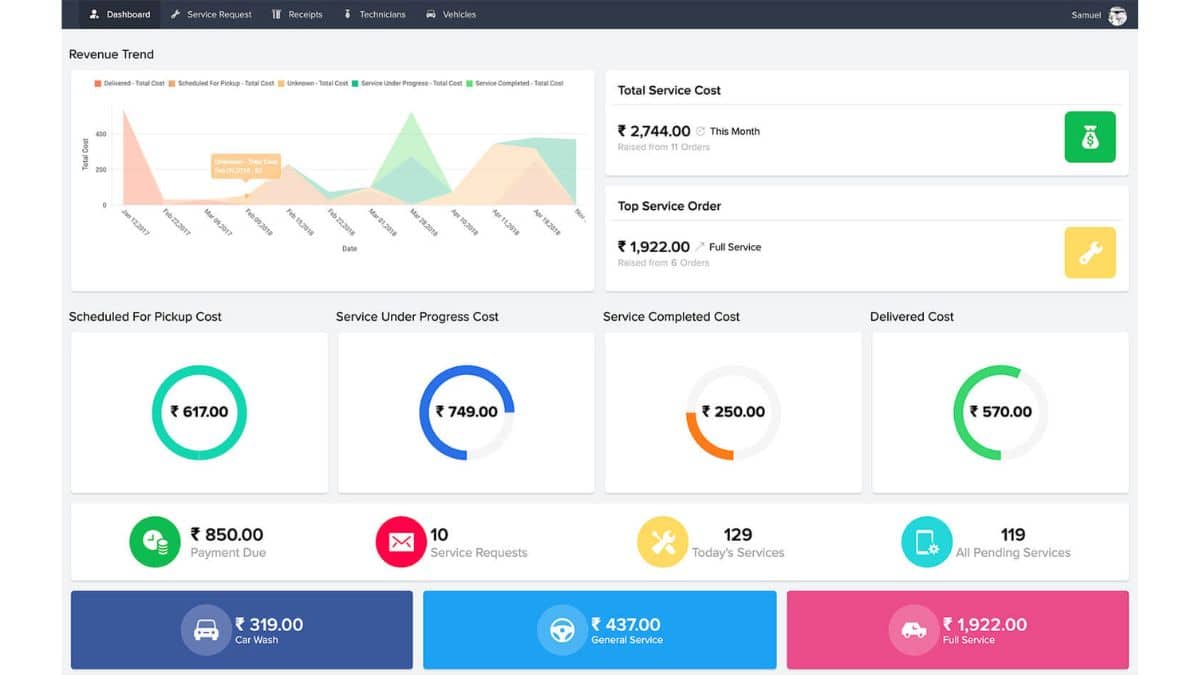
Zoho Creator empowers businesses to develop custom applications for efficient production and operations management, while Zoho’s comprehensive suite of SaaS and cloud-based tools is known for its simplicity and user-friendly experience.
Why we choose: Zoho Creator operation management software stands out for its user-friendly, cloud-based operations management tools that simplify automation. Its low-code development platform enables businesses to create customized workflows with ease.
Key features:
- Cloud-based operations management
- Strong automation capabilities
- Intuitive user interface
- Low-code application development
- Workflow automation
- Data visualization tools
| Pros | Cons |
|
|
9. NetSuite
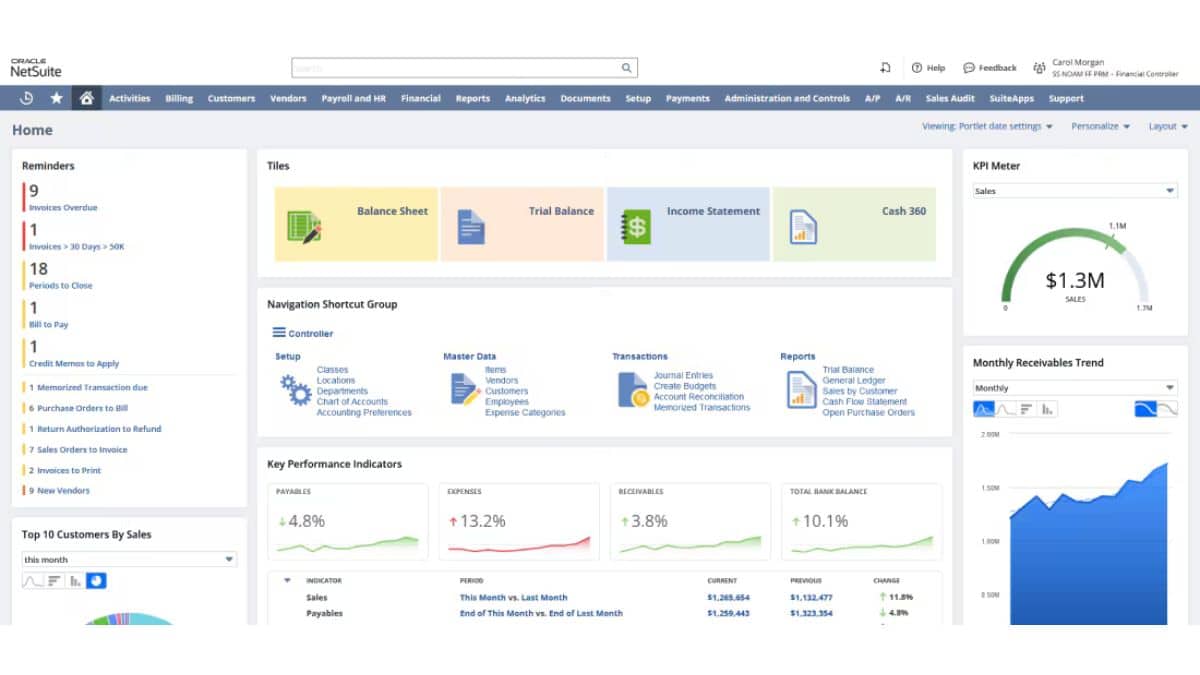
NetSuite, a leading cloud-based ERP solution acquired by Oracle, offers a comprehensive suite of business management tools with robust production and operations management features. Established in the late 1990s, it is renowned for its ability to streamline various business functions through its integrated software solutions.
Why we choose: We chose NetSuite for its comprehensive cloud ERP and operation management software capabilities that provide deep insights into business operations. Its end-to-end management tools and advanced analytics help businesses scale efficiently.
Key features:
- Comprehensive cloud ERP software for trading
- Advanced analytics and reporting
- End-to-end business management
- Advanced financial management
- Customizable dashboards
| Pros | Cons |
|
|
10. ClickUp
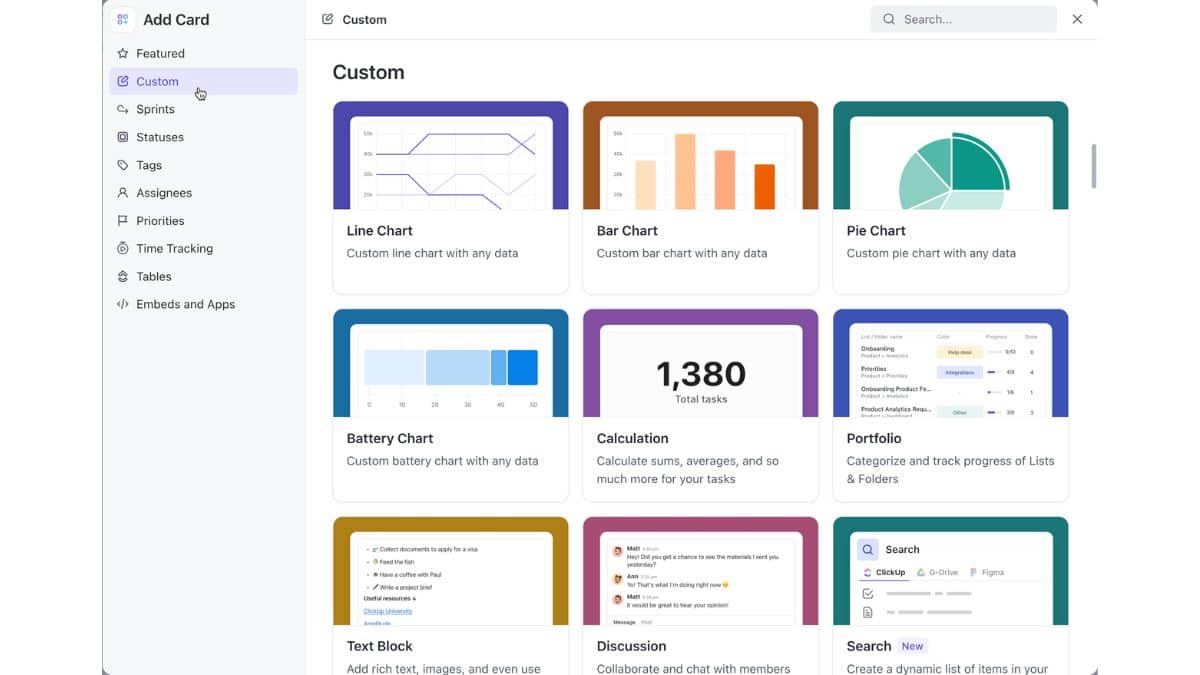
ClickUp is a comprehensive project management and productivity platform designed to streamline operations with a wide range of features. Created to consolidate multiple productivity tools, it has rapidly gained recognition for its highly customizable interface and robust task management capabilities.
Why we choose: ClickUp operation management software was selected for its extensive customization options and powerful automation features, making it a versatile productivity tool. Its robust task management system enhances collaboration and operational efficiency.
Key features:
- Customizable dashboards
- Task and project management
- Time tracking
- Document collaboration
- Customizable workflows
| Pros | Cons |
|
|
Overall Comparison of the Best Operations Management Software in Malaysia 2026
| Provider | Connection Quality | Bank Coverage | Ease of Integration | Data Enrichment |
|---|---|---|---|---|
| Hashmicro | ||||
| Jira | ||||
| Slack Cloud | ||||
| Safety Culture | ||||
| Odoo | ||||
| Zoho Creator | ||||
| NetSuite | ||||
| ClickUp |
5 Reasons Why You Should Use Cloud Operations Management Software in Malaysia

Managing business operations in Malaysia can be complex, but the right tools can turn challenges into opportunities. Cloud operations management software offers a powerful solution by streamlining processes and enhancing efficiency, making it an essential investment for growing businesses.
- Real-time updates for better control: With cloud-based operations management software, you get instant access to real-time data across all departments. This allows you to monitor performance, track progress, and quickly address any issues, ensuring smooth and efficient operations.
- Cost savings and resource optimization: Cloud operation management software automates tasks and optimizes resources, helps reduce operational costs, and eliminates manual errors. By minimizing waste and improving efficiency, businesses in Malaysia can maximize profitability and long-term growth.
- Scalability to support business growth: As your business expands, your tools should grow with you. Cloud-based solutions are highly scalable, allowing you to add new features, users, and modules without the need for expensive infrastructure upgrades.
- Enhanced team collaboration and communication: Cloud operations management software fosters seamless collaboration among teams, even when working remotely. With shared access to real-time data and centralized communication tools, everyone stays aligned and informed.
- Data-driven decision making: Make smarter business decisions with detailed analytics and performance reports. This software provides valuable insights that help identify trends, improve process optimization, and drive strategic growth.
By adopting cloud operations management software, Malaysian businesses can streamline operations, improve efficiency, and prepare for long-term success. Explore how this innovative technology can transform your business today.
How to Choose the Best Operations Management Software for Your Company

Choosing the right operations management software is crucial to enhancing efficiency and driving long-term success. Here are the key factors to consider when selecting the best solution for your business:
- Understand Your Business Needs: Identify your company’s specific challenges and requirements, such as managing inventory or improving resource allocation, to find a tailored solution.
- Align with Company Goals: Select software that aligns with your long-term business objectives, ensuring scalability and flexibility as your business grows.
- Evaluate User-Friendliness: Choose a system with an intuitive interface to ensure a smooth transition and minimize training time for your team.
- Check Integration Capabilities: Ensure the software integrates seamlessly with your existing systems, such as accounting, CRM, and supply chain platforms, for better coordination.
- Consider Cost and ROI: Focus on software that provides value for money and offers strong ROI by improving productivity and reducing operational costs.
By considering these factors, you can select the best operations management software to streamline processes and drive growth in Malaysia’s competitive business environment.
Conclusion
In today’s fast-paced business environment, choosing the right operations management software is essential for ensuring efficiency and long-term growth. With so many options available in Malaysia, selecting the best solution requires careful consideration of your company’s specific needs and goals.
When it comes to managing operations seamlessly, HashMicro ERP software stands out as the ideal choice. Its robust features, flexible customization, and seamless integration make it perfect for businesses aiming to streamline processes and enhance productivity.
Ready to take your business operations to the next level? Request a free demo of HashMicro ERP software today and discover how it can transform your company’s efficiency and success.
FAQ About Operations Management Software
-
What are the 4 types of operations management?
The four primary categories of operations management include:
1. Manufacturing: Ensuring efficient production of goods.
2. Service: Providing high-quality intangible services.
3. Logistics: Overseeing the storage and transportation of goods.
4. Project: Handling projects from initial planning to successful completion. -
What are the 7 functions of operation management?
In an industrial enterprise, operations management primarily encompasses seven functions: planning, scheduling, procurement, oversight, quality assurance, and inventory management.
-
What are the 4 P’s of operations management?
The 4 P’s of operations management refer to People, Performance, Processes, and Projects.
1. People: The workforce is at the heart of operations, influencing productivity, innovation, and efficiency.
2. Performance: Measuring and optimizing efficiency, quality, and overall business outcomes.
3. Processes: Streamlining workflows and procedures to enhance operational effectiveness.
4. Projects: Managing specific initiatives to ensure successful execution and alignment with business goals.These four elements work together to create a well-structured and efficient operations management system.
























